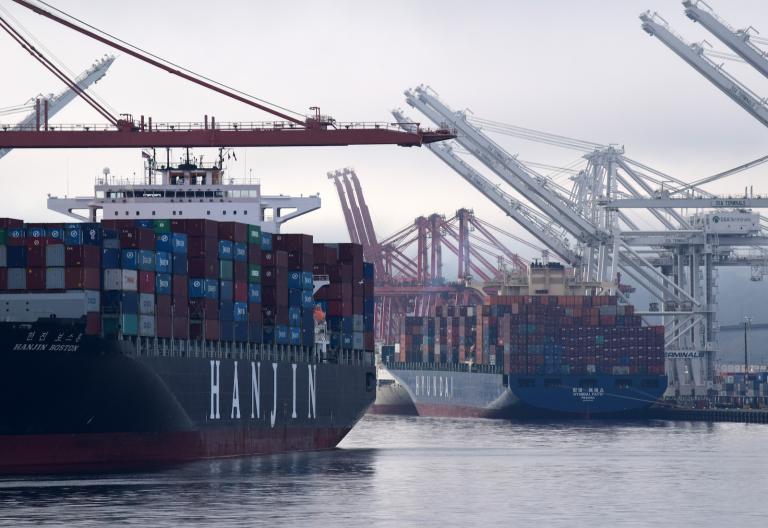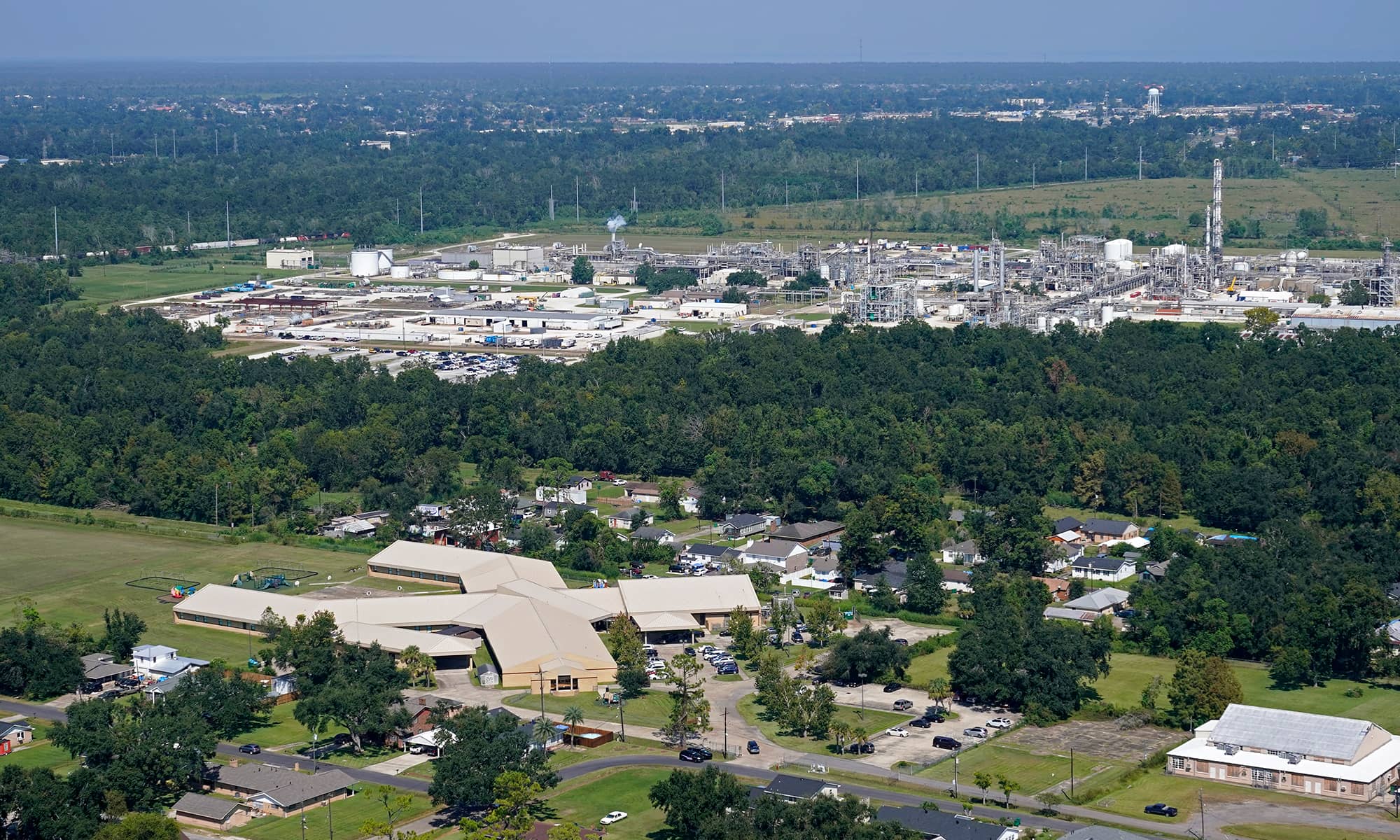The Biden administration sued a chemical company operating in southeast Louisiana on Tuesday, compelling it to face up to the cancer risk generated by its toxic emissions, a move that activists have been demanding for years. Denka Performance Elastomer, a synthetic rubber manufacturing plant owned by a Japanese company of the same name, is located half a mile from an elementary school in St. John the Baptist Parish, where the air is laced with toxic chemicals emitted by dozens of different industrial facilities and more than 60 percent of residents are Black. The parish sits along the Mississippi River just north of New Orleans in the state’s main industrial corridor, a region commonly known as “Cancer Alley.”
“This brings us hope,” said Mary Hampton, president of the local advocacy group Concerned Citizens of St. John, which was founded in 2016. “It’s been a long time coming. We need action now for our children and want this to be put in place immediately.”
Denka’s facility is the only one in the country that makes neoprene, a type of synthetic rubber used for wetsuits and mousepads, a process which releases the carcinogen chloroprene. The material was invented by scientists at Dupont, the American chemical giant that owns the complex where Denka operates, and that sold it the neoprene plant in 2015. In its complaint filed on Tuesday, the Justice Department also named Dupont as a party responsible for ensuring that the plant reduces its emissions of chloroprene, which has been linked to numerous cancers and diseases of the nervous, immune, and respiratory systems.
In November 2021, EPA Administrator Michael Regan visited people living near the facility during his “Journey to Justice” tour, a survey of polluted communities across the south. It was part of the Biden administration’s effort to spotlight concerns of environmental justice, a term that refers to the disproportionate pollution borne by so many low income communities of color across the country. After the visit, Regan sent a letter to Denka urging executives to take steps to reduce the threat to those living in the surrounding towns of Laplace and Reserve. In particular, he expressed concern for the 300 students attending the nearby Fifth Ward Elementary School. On Tuesday, Regan said in a statement that the company had not “moved far enough or fast enough” on those requests.
“When I visited Saint John the Baptist Parish during my first Journey to Justice tour, I pledged to the community that EPA would take strong action to protect the health and safety of families from harmful chloroprene pollution from the Denka facility,” Regan said. “This complaint filed against Denka delivers on that promise.”
The Justice Department’s complaint was made under Section 303 of the Clean Air Act, which provides the EPA with the authority to address conditions that present “an imminent and substantial endangerment” to the public’s health. The EPA knew about the threat Denka posed to residents of Reserve and Laplace as early as 2015. That year, the agency published data indicating that the risk of developing cancer from air pollution in the census tract closest to Denka was nearly 50 times the national average, a result of the plant’s chloroprene emissions.
Louisiana’s Department of Environmental Quality reached an agreement with Denka requiring the company to install pollution controls in 2017. But air monitors that the EPA set up around the facility continued to pick up concerning levels of the chemical.
Environmental lawyers and residents of St. John have petitioned state and federal authorities to do more to tamp down Denka’s emissions for years. Last January, the environmental watchdog Earthjustice, on behalf of the local advocacy group Concerned Citizens of St. John and the Sierra Club, filed a civil rights complaint with the EPA against Louisiana’s health department and environmental agency for subjecting Black residents of St. John to disproportionate air pollution from numerous industrial facilities, including Denka. Separately, the two groups sued the EPA for missing a deadline to update its regulations for neoprene manufacturing plants. The agency is now under a court order to get it done.
On Tuesday, residents and advocates celebrated the news, describing it as justice long overdue.
Deena Tumeh, an attorney at the environmental watchdog Earthjustice, said in a statement that the complaint is “a long-awaited answer to the community’s repeated calls for immediate action. EPA is finally treating this health crisis for what it is—an emergency.” What remains to be seen, she told Grist in an email, is how much and how fast it will be enforced.




